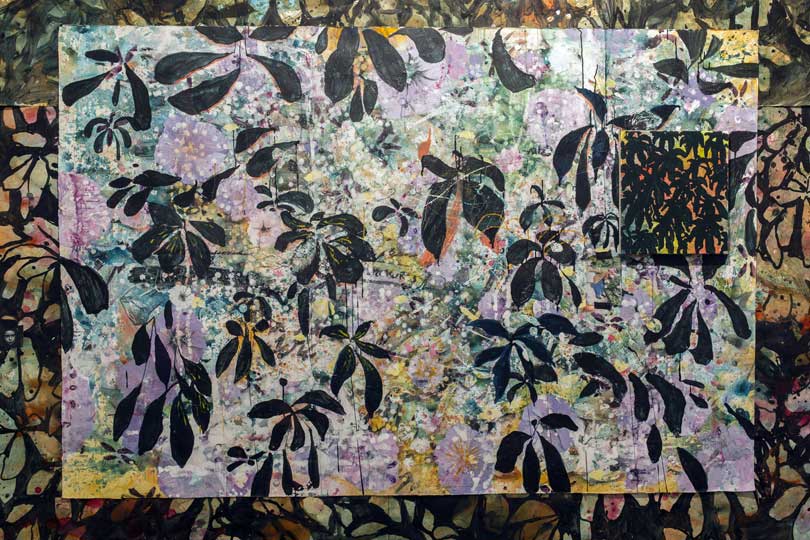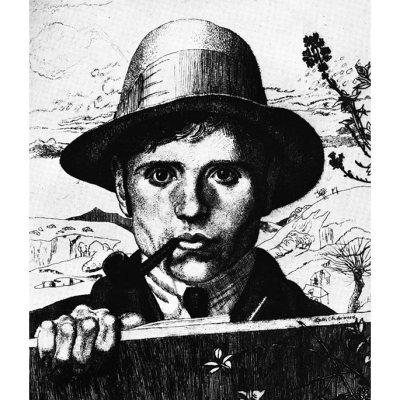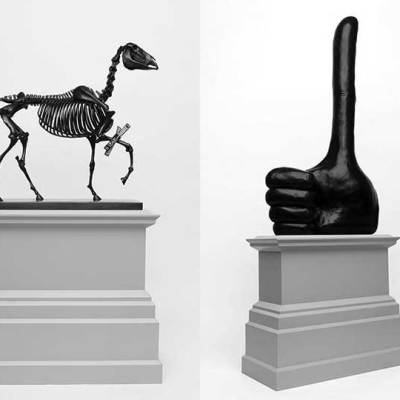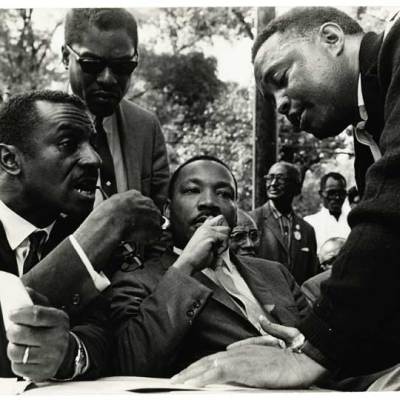At the London Art Fair in January, Art Catlin launched its sixth annual Catlin Guide rounding up 40 of the UK’s most promising new art-school graduates – one of whom will eventually walk away with the Catlin Art Prize of £5,000. Today we get a step closer to finding out who that will be. The eight finalists announced this morning will all feature in a temporary exhibition at the Londonewcastle Project Space in Shoreditch before the prize-giving on 13 May. Who has been selected, and what can we expect from the show?
Paul Schneider (Royal Academy of Arts)
Paul Schneider’s work often focuses on some of the most popular signs and signals – like ‘pokes’ and smileys – that we exchange, unthinkingly, every day. Re-presented as art, he manages to make them strange again. As he puts it in the Catlin Guide: ‘I want to create work that’s like walking into a cartoon, computer screen or collage’.
Zhu Tian (Royal College of Art)
Zhu Tian with ‘Babe’ (2013). Royal College of Art, London, MA Sculpture. Photo by Yiannis Mouzakitis

Zhu Tian combines humour with a sharp sense of critique in her sculptural work, deliberately overturning popular, appealing imagery and upsetting our expectations of consumer objects. Her hairy shoes, Babe, (pictured) certainly upset a few stomachs at the Daily Mail.
Oliver Hickmet (City & Guilds of London Art School)
In Oliver Hickmet’s latest works, printed pockmarked landscape scenes are draped over stretchers too small for them. They continue his long line of enquiry into contemporary imagery, and how we are consciously ‘remaking’ the world around us, combining and confusing ‘real’ and ‘fake’ information.
Nicholas Johnson (Royal College of Art)
Johnson, when asked to describe his practice in the Catlin Guide, puts it simply enough: ‘I tend to say I paint flowers’. But his vibrant paintings don’t quite fit into any of the usual genres. Their bright but slightly sickly colours suggest both growth and decay, like a memento mori, while his signature dark leafy forms have a decorative, abstract quality to them.
Lexi Strauss (Royal College of Art)
Strauss weaves painting, stories, light and sound (including songs performed by her son, a chorister at Worcester Cathedral) together in her work, which picks away at our notions of what constitutes truth and narrative.
Jon Baker (Chelsea College of Arts)
Mother’s Medal (Blacked) (installation image; 2015), Jon Baker. Chelsea College of Art, University of the Arts London, BA (Hons) Fine Art
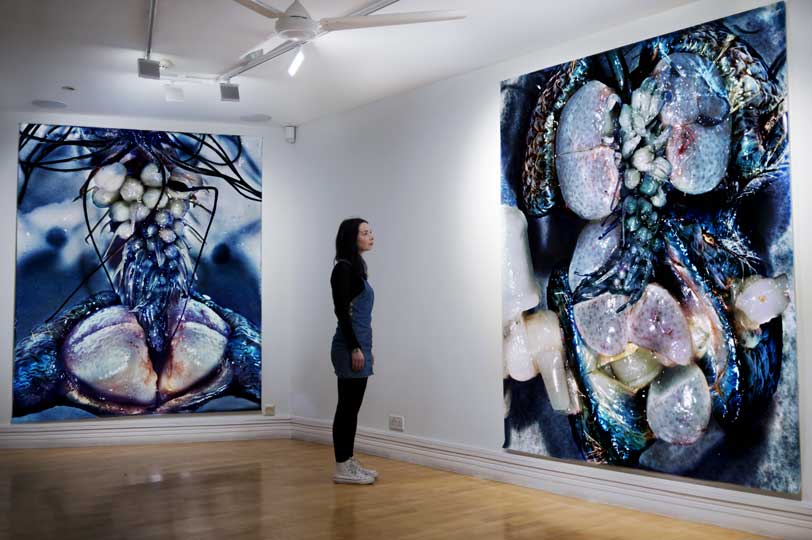
The masculine sexual drive is behind a huge amount of art and imagery, both historically and in contemporary life. But Jon Baker turns it into the subject of his work, depicting a slick and visceral version of sexuality that is simultaneously attractive and disturbing.
Felicity Hammond (Royal College of Art)
Felicity Hammond in her live-work studio, 2015. Royal College of Art, London, MA Photography. Portrait courtesy the artist

Ruins and ‘future ruins’ are at the centre of Felicity Hammond’s work. The photographer and installation artist is interested in how the fabric of urban life is in a constant state of renewal and decay, and often turns her attention to depicting structures that have fallen out of use. Her recent series of photographs, ‘Restore to Factory Settings’, bathes neglected sites in a rather mournful blue light.
Dominic Watson (Glasgow School of Art)
 In his recent film, Bootcut Renaissance (pictured), Dominic Watson uses performance art to lampoon the entertainment industry’s equally performative depiction of masculinity. It’s the latest in a series of works that explores how society categorises people and constructs roles for them to play.
In his recent film, Bootcut Renaissance (pictured), Dominic Watson uses performance art to lampoon the entertainment industry’s equally performative depiction of masculinity. It’s the latest in a series of works that explores how society categorises people and constructs roles for them to play.
The Catlin Art Prize is at Londonewcastle Project Space, London, from 8–30 May. A preview event on 7 May is open to all (7–9pm).
Related Articles
Catlin Art Prize shortlist announced (2014)
Scouring the art schools: the search for the UK’s best young artists (Justin Hammond)



